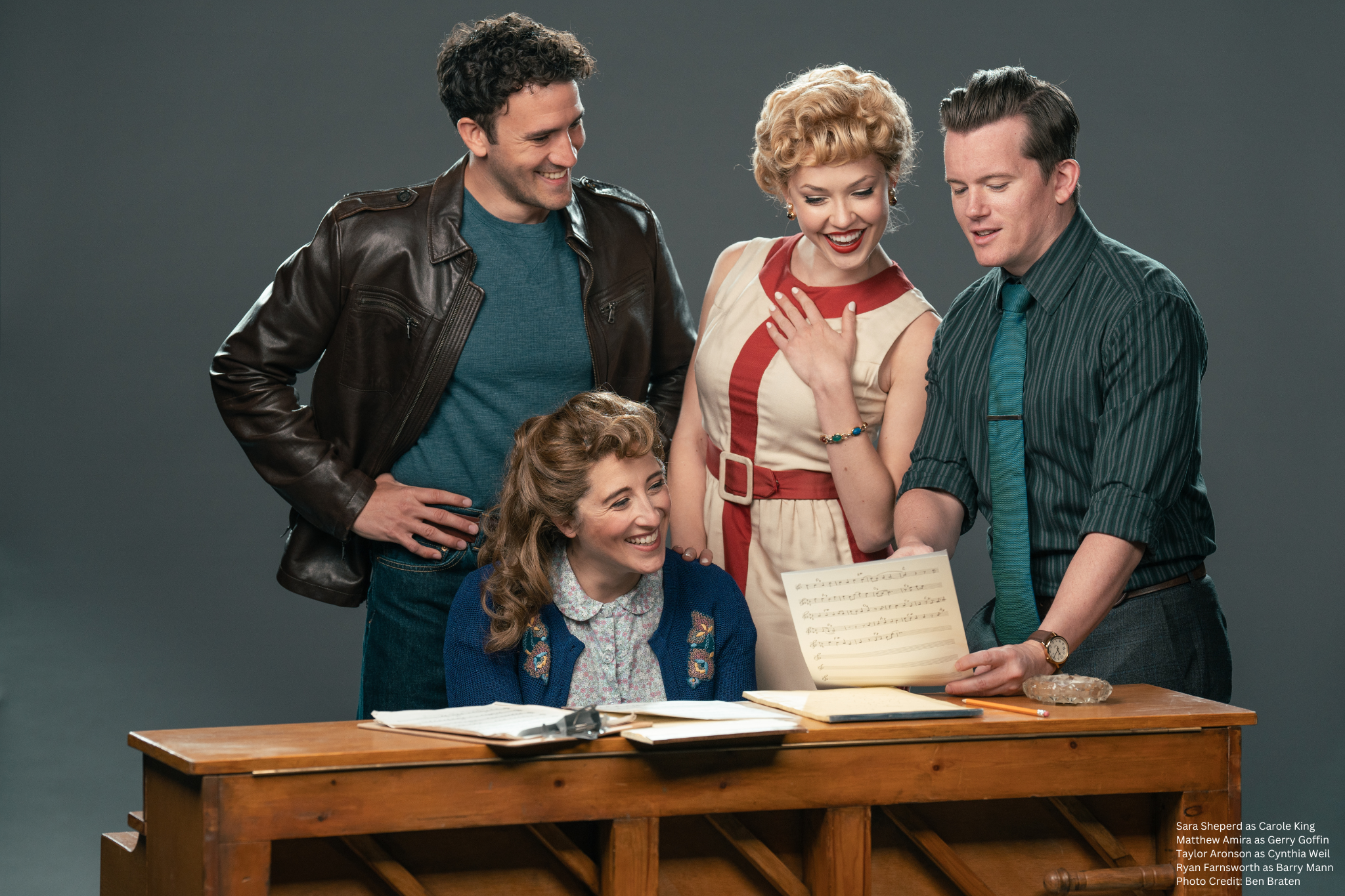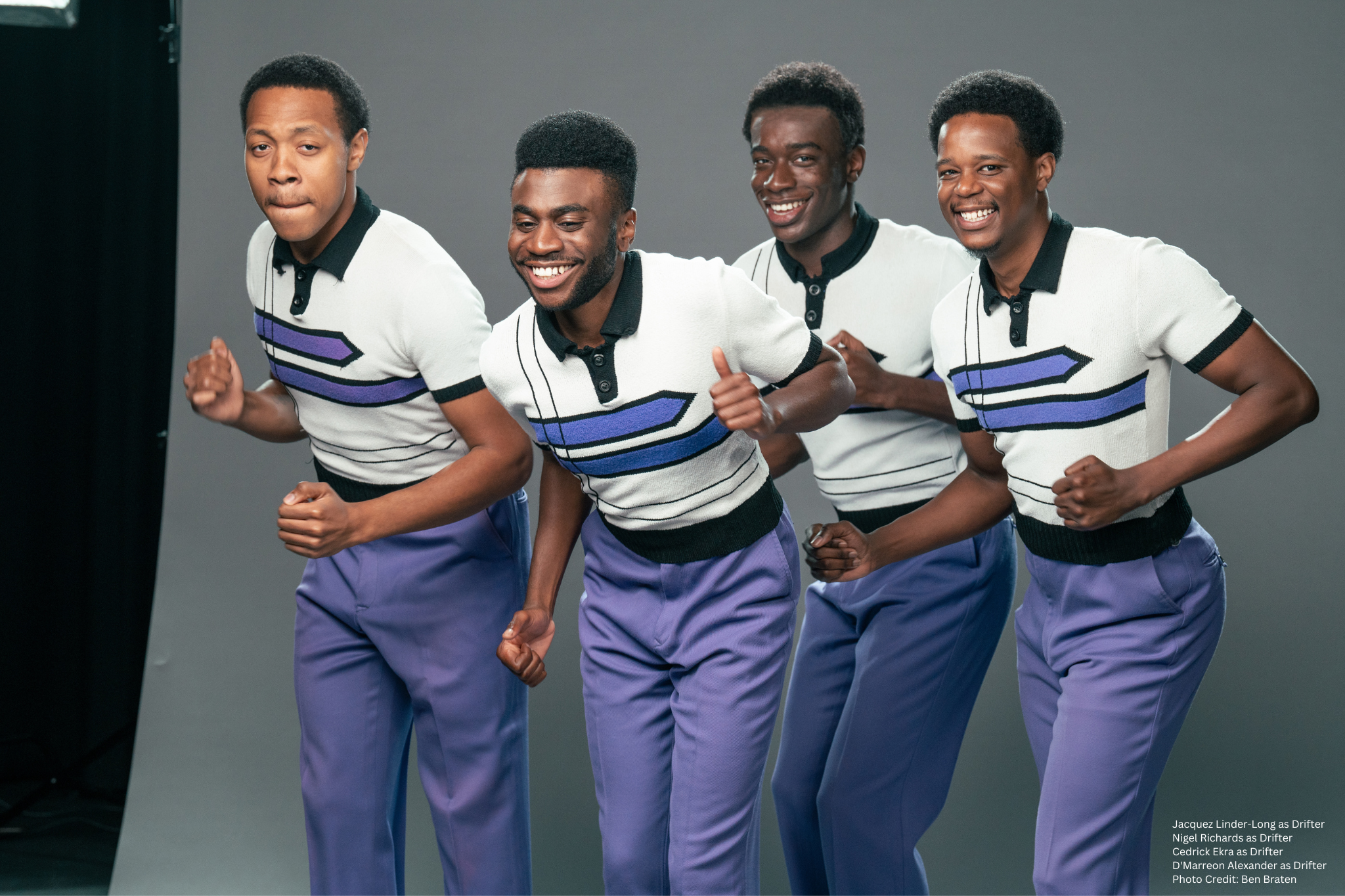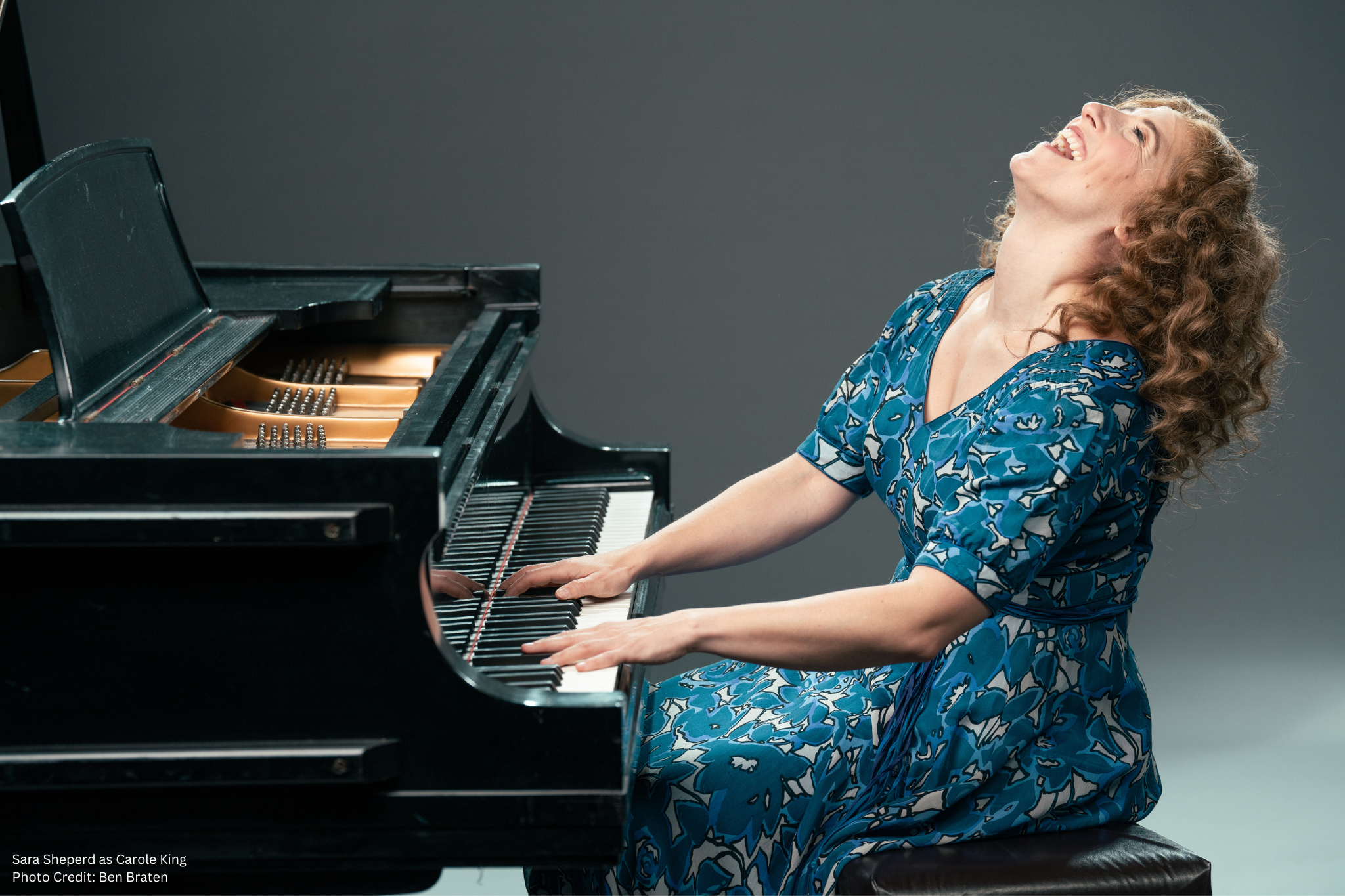IVINS — In a 2015 interview with CBS, Carole King (born Carol Joan Klein) stated, “I only wanted to be a songwriter. I never wanted to be a singer, and I never wanted to be famous.” Whoops. King was part of a dynamic songwriting duo that has written chart-topping hits and dozens of well known songs in addition to having a strong solo career. After a successful six-year Broadway run of Beautiful: The Carole King Musical (with book by Douglas McGrath, music and lyrics by Gerry Goffin and Carole King with Barry Mann and Cynthia Weil), the life of the titular singer/songwriter has never been more famous. On Monday, July 3, I attended a production of the show at the Hafen Theatre at the Tuacahn Center for the Arts. The indoor theatre was a welcome reprieve from oppressive triple digit heat of St. George, and the show was a potent message of healing and kindness as well as the joy of sharing art with people you love.

Unlike the life-time spanning story of other jukebox musicals like Tina: The Tina Musical, Beautiful focuses on a shorter window of time, focusing on the decade that King spent in a roller coaster marriage with partner Gerry Goffin (played by Matthew Amira) and launched her into a solo career. It explores the joys and challenges of songwriting, her surprise pregnancy and young marriage, and grappling with the painful infidelity of Gerry. The show features six key characters and two high powered pop ensembles that bring the songs of King and Goffin to life with true to era costuming, and exhilarating vocalists.
These ensembles were undoubtedly the highlight of the first act. While they represented a number of famous musicians, the ensembles were largely broken up into a male group known as the Drifters (played by D’Marreon Alexander, Cedrick Ekra, Jacquez Linder-Long, and Nigel Richards) and a female group, the Shirelles (portrayed by Briana Brooks, Rosharra Francis, Alloria Frayser, and Jazz Madison). These eight performers and other key ensemble infuse the songs with poppy choreography and resonant voices that gave a modern punch to hits from a bygone era. Songs such as “Some King of Wonderful” and “Will You Love Me Tomorrow?” were bouncing around my skull the rest of the night. Particular kudos to Francis, whose portrayal of the fictional Janelle Woods (a singer meant to represent Goffin’s many philanderings), found great balance in her role. Woods and Goffin have an open affair in the show, and Woods does not have a line about it. Francis managed to communicate through posture and indifference towards King an iciness that chilled the audience as Gerry tells Carole about his plan and then executes it. It was a hard sequence to watch, made stronger by Francis being keyed in on the right focal points. And no one was funnier than Rachel Coloff at the hysterical Genie Klein, Carole’s mother, whose presence on stage was filled with quips and asides that were phenomenal.

As Carole King, Sara Sheperd begins the show inviting the audience to reflect with her on how she made it to Carnegie Hall. The show highlights obstacles King faces, such as pursuing her dream as a songwriter despite her mom’s insistence that she be a teacher, facing rejection and hard deadlines in her career, and being unsure how her boyfriend Gerry will respond to the news of her pregnancy. These difficulties largely play out to spectacular results, as Gerry proposes on the spot, her songs are a wild success and her mother embraces her career change. Through these scenes, Sheperd’s portrayal of King is much like the character Joy from Disney-Pixar’s Inside Out. She is a determined optimist who always assumes there will be a way forward until there isn’t. Shepard’s smile had such an impressive range in this performance, from giddy relief, to suppressed anguish and a million things in between. Shepard’s performance was rich with nuance as she found a thousand ways to smile true to Carole King’s benevolent nature. Shepard is a top-shelf singer whose acting and on-stage chemistry with Amira made tender moments sweeter and bitter moments more rife with sorrow. Through many years and wildly shifting circumstances, who King was as a person shined through Shepard exceptionally well.
Directors Darvid Ruttura and Joyce Chittick keep a sincere but hopeful tone for the entire night and finding the right moments to raise intensity for the audience. There’s a scene where Goffin and King are on vacation with their best friends and competitive rivals Cynthia Weil (played by Taylor Aronson) and Barry Mann (played by Ryan Farnsworth), and Gerry suggests they play strip poker. When the game is down to Gerry or Cynthia literally about to lose their shirts, the tension plays out long enough to be fraught while being released in a way that allows the audience to catch their collective breath. This moment and others like it played close to the boundaries a Tuacahn audience appreciates without stepping across them, and the direction was key to finding those nuances of character.

I was also particularly impressed by how quickly and naturally the hairstyles on King shifted. It was true for other characters as well, but hair/make-up coordinator Matthew Reeves Oliver had a monumental task of changing King’s style for nearly every scene. It appeared as though Shepard’s real hair was used but changed consistently because it looked so natural and free, but it was so frequent and with such sharp changes I had was convinced their hair must be wigs that swapped. My confusion on this matter is a tip to the wizardry of Oliver and the production team. Similar swaps of vivacious 1960s costuming, especially for the ensemble was a huge success for costume coordinator Jill Tarr.
Beautiful: The Carole King Musical plays well to a crowd that will be able to croon along to the opening chords of songs such as “The Locomotion,” “It’s Too Late,” “You’ve Lost That Lovin’ Feeling,” and “Who Put the Bomp?” For Tuacahn, the cast and crew put a lot of bop in the bop shoo bop shoo bop, and there was even some rama lama lama lama, rama ding dong to go with it. Beautiful is a fun piece that ends with warmth and forgiveness, and the story is generous in its writing to all involved. While King does not give a pass to Gerry breaking her heart, the text does not vilify him either, and after the show’s finale encore, Sheperd and Amira went off stage arm in arm inviting audiences to see the world as a more beautiful place.
[box]The Tuacahn Center for the Arts production of Beautiful: The Carole King Musical plays nightly (except Sundays) at 7:30 PM and on Saturdays at 2 PM through August 19 at the Hafen Theatre (1100 Tuacahn Drive, Ivins). Tickets are $32-91. For more information, visit tuacahn.org.[/box]

